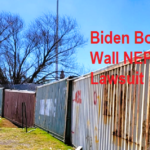The founder of Dominion Voting Systems’ deposition represents a major turn in the suit against MyPillow CEO Mike Lindell. One of the biggest defamation cases to be recorded in recent times, the case involves charges of misrepresentation claims and the damages that follow. MyPillow CEO Mike Lindell is sued by Dominion Voting Systems for $1.3 billion.
Lindell claimed Dominion’s voting machines were a tool of electoral fraud in the US 2020 presidential election. Dominion asserts that these claims led them to incur significant financial and reputational damages. The case is not merely about one company defending itself against accusations—it is an effort on a larger scale to combat the danger of misinformation and its impact on democracy.
It also raises significant issues about the limits of free expression, the responsibilities of public figures, and the legal boundaries of defamation. Legal commentators point out that this case is similar to Dominion’s $787.5 million settlement with Fox News, which set a precedent for defamation cases relating to election misinformation.
The founder of Dominion’s deposition is a turning point that may change the direction of the case. It is a chance to offer evidence, clarify facts, and refute Lindell’s claims. As the battle in court rages on, the implications of this case reach far beyond the courtroom.
What is the Dominion-Lindell Lawsuit?
Dominion Voting Systems sued Mike Lindell for defamation at the beginning of 2021. The company says Lindell made false claims that Dominion’s voting system was involved in a conspiracy to steal the 2020 election. These claims, which were often repeated in media releases, interviews, and public speeches, quickly became widely known. Dominion also alleges that these claims were false and harmful to its business’s operations and reputation.
But Lindell justifies his words by invoking his First Amendment rights. He asserts that his allegations were based on evidence and that expressing concerns regarding election integrity was in the public interest. UCLA law professor of First Amendment law Eugene Volokh explains, “Although free speech guards against opinions, knowingly disseminating false information that harms a company’s reputation can be defamation under U.S. law.” The crux of the complaint is whether Lindell’s assertions were protected speech or defamatory falsehoods that inflicted Dominion quantifiable harm.
Allegations Against Mike Lindell
Mike Lindell has been a vocal proponent of the claim that the 2020 US presidential election was “stolen” due to widespread fraud. His repeated assertion that Dominion Voting Systems had a major role in election interference is central to these allegations. Dominion’s lawsuit outlines several specific allegations against Lindell:
False Claims About Voting Machines
Lindell openly declared that Dominion’s voting machines were created to change the results of the election. According to him, the machines shifted the votes from Donald Trump to Joe Biden and swung the election. Dominion has persistently debunked these allegations, claiming that their machines are secure, dependable, and thoroughly tested. U.S. Cybersecurity and Infrastructure Security Agency (CISA) cybersecurity professionals attested to the fact that the 2020 election was “the most secure in American history,” going head-on against Lindell’s claims.
Spreading Unfounded Conspiracy Theories
Lindell is charged with disseminating conspiracy theories without presenting credible evidence. Such claims involve allegations that Dominion’s software was created to rig elections and that other players, such as China and Venezuela, were involved in the alleged rigging. A 2021 forensic audit of Dominion machines in a number of states revealed no voter manipulation, as quoted in an independent review by the Election Assistance Commission (EAC).
Public Campaign Against Dominion
Dominion claims Lindell used his public platform to launch a targeted campaign against the company. This includes multiple appearances in media interviews, public speeches, and even creating a self-funded documentary to support these allegations.
Financial and Reputational Harm
Dominion believes Lindell’s allegations caused significant damage to their business. The company was subjected to threats and harassment, causing it to lose contracts with several states and incur higher security costs. Dominion also claims Lindell’s actions eroded public trust in their technology, causing long-term damage to their brand. According to an internal Dominion report, the company lost multiple state contracts worth tens of millions of dollars due to the negative publicity generated by Lindell’s statements.
Why Is the Dominion Founder Deposition Important?
The deposition of Dominion’s founder is a critical aspect of this lawsuit. It’s a formal legal process where the founder gives sworn testimony regarding the company’s operations, reputation, and the implications of Lindell’s comments. This deposition is important for several reasons:
Clarifying Facts About Dominion Systems
The deposition will provide factual information about the reliability and security of Dominion’s voting systems. Lindell’s assertions implied vulnerabilities and potential manipulation, which Dominion has repeatedly denied. The founder’s testimony will directly address these allegations.
Dominion alleges that Lindell’s words resulted in contract cancellations, business loss, and a deterioration of public trust. The deposition will help quantify the financial and reputational damage caused by these claims. Legal analysts from Harvard Law School note that financial losses play a key role in defamation lawsuits, as plaintiffs must prove actual damages in court.
Establishing Credibility
The founder’s testimony can refute Lindell’s claims and help restore trust in Dominion’s technology. A clear, fact-based presentation can enhance Dominion’s credibility and counteract the misinformation Lindell spread.
The Broader Implications of the Case
The Dominion-Lindell case extends beyond a legal dispute. It raises significant issues about free expression, misinformation, and the role of accountability in public discourse. Here are the main issues at stake:
Addressing Misinformation
Spreading misleading information can have catastrophic consequences. In this case, Lindell’s assertions about Dominion’s devices fueled widespread skepticism of election technology.
Studies from MIT’s Media Lab show that false election claims spread much faster than verified information, amplifying public distrust. This lawsuit underscores the importance of holding individuals accountable for making baseless claims that harm others.
Defining the Limits of Free Speech
The First Amendment guarantees free speech, but not libelous statements. Legal precedents like New York Times Co. v. Sullivan established that public figures must prove “actual malice” to win defamation cases, which Dominion will have to demonstrate against Lindell. This case will explore the balance between these principles and could set a precedent for future legal handling of such matters.
Restoring Public Trust
Dominion’s voting methods are used in elections across the U.S. False claims about their reliability can undermine trust in the democratic process. The lawsuit seeks to restore trust in Dominion’s technology and the political system.
The Role of Technology in Lawsuits
Technology plays a central role in this case. Lindell’s claims focus on Dominion’s voting machines, and digital evidence is essential to the complaint.
Proving the Integrity of Dominion’s Systems
Dominion must prove that its voting systems are secure, reliable, and free of manipulation. The deposition allows the founder to explain the technology in detail and correct any misconceptions or inaccuracies.
Using Digital Evidence
The complaint relies on a variety of digital data, including Lindell’s social media posts, videos, and public statements. This evidence will help demonstrate the extent of Lindell’s allegations and their implications for Dominion.
Challenges and Opportunities for Both Parties
Both Dominion and Lindell face significant challenges and opportunities in this dispute. The deposition of Dominion’s founder is a critical event that could influence the outcome.
Challenges for Dominion
- Proving the extent of the harm caused by Lindell’s statements.
- Addressing any perceived vulnerabilities in their voting systems.
Challenges for Lindell
- Providing credible evidence to support his claims.
- Overcoming Dominion’s significant resources and legal expertise in the case.
Opportunities for Dominion
- Rebuilding trust in their technology and restoring their reputation.
- Sending a strong message about the consequences of spreading misinformation.
Opportunities for Lindell
- Highlighting his concerns about election integrity.
- Framing his statements as an exercise of free speech and public advocacy.
What Happens Next?
The deposition of Dominion’s founder is a critical step in this legal battle. It provides key evidence to shape both sides’ arguments and strategies. The court will eventually decide whether Lindell’s statements were defamatory and, if so, what damages he may owe Dominion.
For Dominion, the deposition is an opportunity to rebuild trust and counter misinformation. For Lindell, it’s a chance to defend his claims and assert his right to free speech. The outcome of this case will have significant implications for both parties and the broader issues it addresses.
Conclusion
The Dominion founder’s testimony in the Lindell lawsuit is a crossroads of this historical case. It is a chance to sort out facts, construct evidence, and ascertain accountability. This case exceeds the specific controversy between Dominion and Lindell. It poses significant questions regarding the limits of free speech, the consequences of misinformation, and the responsibilities of public figures.
The stakes are high for both parties. Dominion wishes to restore confidence in their technology and hold Lindell responsible for what they perceive as damaging falsehoods. Lindell wishes to defend his opinions and uphold his right to free expression. The result of this case will determine future legal standards for defamation and public speech.
As the case continues, Dominion founder’s testimony continues to be a pivotal moment in the struggle for truth, accountability, and justice in times of deceit.


